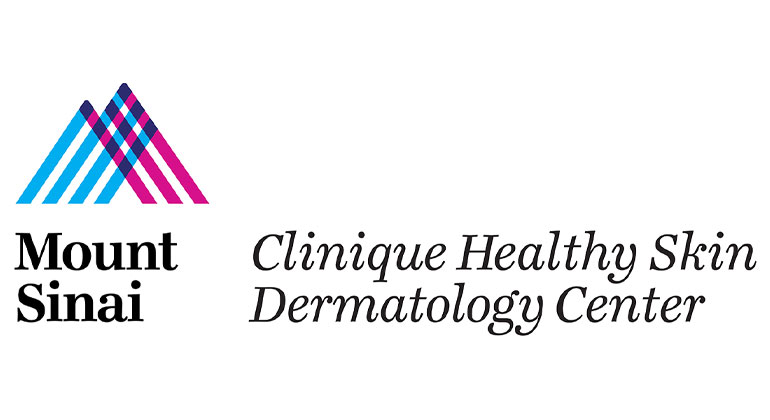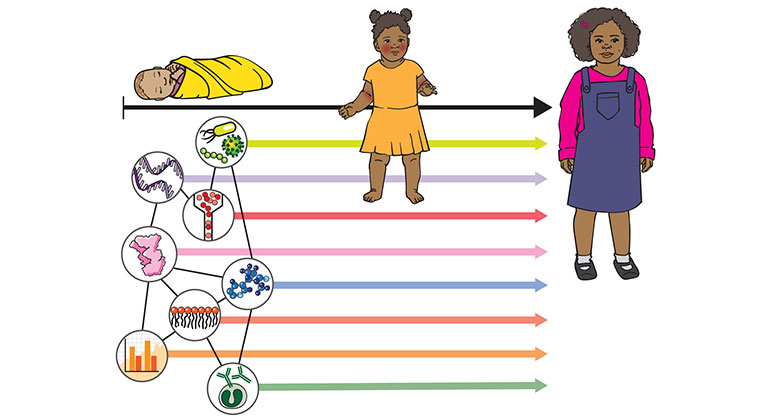Asness Family Center of Excellence in Eczema and Allergic Conditions







Eczema is one of the most common skin conditions, affecting three percent of people in the United States. It generally starts in childhood (before age five), but some people develop it later in life. Research suggests that eczema develops due to genetic and environmental factors that make it difficult for the skin to maintain a healthy barrier. When this happens, allergens and bacteria can enter and cause inflammation, leading to eczema.
At the Asness Family Center of Excellence in Eczema and Allergic Conditions at Mount Sinai, our team, directed by Emma Guttman, MD, PhD, has developed some of the safest, most effective therapies for these conditions. Our scientists are conducting groundbreaking studies to develop new treatments. We participate in multiple clinical trials, which gives our patients access to new therapies that are not available anywhere else.
If you have eczema, you may have some or all of these symptoms:
- Dry, sensitive skin
- Itching
- Oozing and crusting
- Red, scaly patches of skin
- Rough, leathery skin
Types of Eczema
There are several types of eczema. You can develop more than one kind of eczema at a time.
- Atopic dermatitis is a chronic condition that often begins in childhood. If you have asthma or hay fever or a family history of atopic dermatitis, you are at higher risk. Many children grow out of this skin disease, though it can sometimes last into adulthood.
- Contact dermatitis is a rash that develops when your skin touches something you are allergic to. This can include detergents, tobacco smoke, paint, bleach, wool, astringents, acidic food, certain soaps, fragrances, and skin care products, as well as animal dander or pollen.
- Dyshidrotic eczema produces itchy blisters on the edges of the fingers, toes, palms, and soles of the feet. It is often a response to stress, allergies, moist hands and feet, or exposure to metals such as nickel, cobalt, and chromium salts.
- Nummular eczema causes circular, dry spots on the skin that can be very itchy. Researchers believe that it might be related to insect bites, skin inflammation, or dry skin in the winter.
Allergic Conditions Associated With Eczema
At the Asness Family Center of Excellence in Eczema and Allergic Conditions, we’re focused on treating your eczema, but we also take into account any related allergic conditions you may have. We'll look into how these conditions are connected and work with you to find the best way to manage all of your symptoms.
Along with your eczema, we treat other related allergic conditions including:
- Asthma
- Seasonal allergies
- Allergic rhinitis
- Alopecia areata
Additional forms of dermatitis
- Seborrheic dermatitis causes skin redness and flaking that tends to appear on the scalp, face, and upper chest. In babies, we call this condition “cradle cap,” though it happens to people of all ages.
- Stasis dermatitis presents as redness, scaling, itching, and pain. You are more likely to have this condition if you have chronic ankle/calf swelling. Usually what happens is you have poor blood flow in your leg veins and some of the fluid leaks out of the veins and irritates the skin. In more severe cases, you could develop oozing, open sores, and infection.
Treatments We Offer
Our specialists provide established and novel treatments for all forms of eczema, including the following:
Phototherapy (Light Therapy)
Provided in Mount Sinai’s Phototherapy Suite (which is among the world’s largest such units), this prescription treatment uses ultraviolet (UV) light emitted by an artificial lamp or laser. Your dermatologist may recommend this therapy if your atopic dermatitis is widespread, or if you have a more localized rash that has not gotten better with other treatments. Your session will involve applying moisturizer to your skin, then being exposed to bursts of light that may last from several seconds to minutes. Your dermatologist will determine the frequency of your visits, which should start to improve your eczema within one to two months. Side effects may include skin tenderness and premature aging of the skin.
Biologics
Biologic drugs are a genetically engineered, targeted therapy that blocks the action of a key immune system protein called interleukin. This interference calms the immune system in order to reduce atopic dermatitis (AD) inflammation and symptoms. Such treatments include Dupixent® (dupilumab), the first biologic approved by the U.S. Food and Drug Administration (FDA) for AD. Its side effects may include pink eye and a reaction at the injection site. We also offer newer biologic treatments targeting specific interleukin in the allergy spectrum such as Ebglyss™ (lebrikizumab) or Adbry® (tralokinumab).
Oral Medications
In order to calm the immune system overreaction that causes the inflammation of AD, your doctor may prescribe an immunosuppressant medication. Taken orally, immunosuppressants can be used to treat those with moderate or severe conditions. Oral medications include traditional systemic medications, which carry side effects including increased infection risk, nausea, and increased risk for certain cancers. Immunosuppressant oral medications also include steroids, such as prednisone, which may be used to control severe inflammation but could cause symptoms to worsen after the medication is stopped.
We also provide newer oral medications, specifically targeting Janus kinase (JAK) proteins that are called JAK inhibitors. These include Rinvoq® (upadicitinib) or Cibinqo® (abrocitinib) that received FDA approval recently for adolescents and adults with eczema.
Topical Medications
Corticosteroids are a common prescription treatment that can be applied to the skin in order to minimize itching and inflammation. These medications may be used in adults and children, but they should be stopped or reduced according to your dermatologist’s instructions once symptoms are under control. Side effects may include thinning of the skin and stretch marks.
We also offer newer topical medications targeting JAK proteins such as Opzelura (ruxolitinib) or other proteins such as Zoryve (roflumilast).
Why Choose Mount Sinai
At our Asness Family Center of Excellence in Eczema and Allergic Conditions, we have physicians renowned for treatment and research of eczema and associated diseases. Our team has had a major role in the development of new treatments for eczema, and we treat eczema patients from all over the world. Thanks to our research efforts, we can offer the most advanced therapies for these chronic and challenging conditions.
We can also test to see if you have an allergy that is making your eczema worse or is causing contact dermatitis. We design our allergy patch testing to meet your individual needs and do not use the same set of patch tests for all patients. Studies have found that food allergies can make eczema symptoms worse in some children. When appropriate, we may refer you to the food allergy experts of the Elliot and Roslyn Jaffe Food Allergy Institute at Mount Sinai.
Eczema Research and Clinical Trials
We perform laboratory research and conduct clinical trials in eczema therapies. Our clinical trials unit is among the largest in the United States. This means our patients have access to the very latest treatments.
Some of these developments directly stem from research conducted in our Eczema Program. One such discovery is a treatment targeting a specific white blood cell called a T-helper 22 lymphocyte (Th22), which we found to be highly increased in eczema cases and associated with disease severity.
We offer a number of clinical trials for patients with all types of eczema. We provide trials for topical treatments, pills, and injection medications in patients of all ages. Contact our Clinical Research Program Director, Giselle Singer, at giselle.singer@mssm.edu or call 212-241-3288 for more information.

Mount Sinai Experts Author Landmark ‘Seminar’ on Atopic Dermatitis (Eczema) in The Lancet
Feb 13, 2025 View All Press Releases
New Treatment for Moderate to Severe Atopic Dermatitis Shows Promising Long-Term Results
Dec 09, 2022 View All Press Releases



